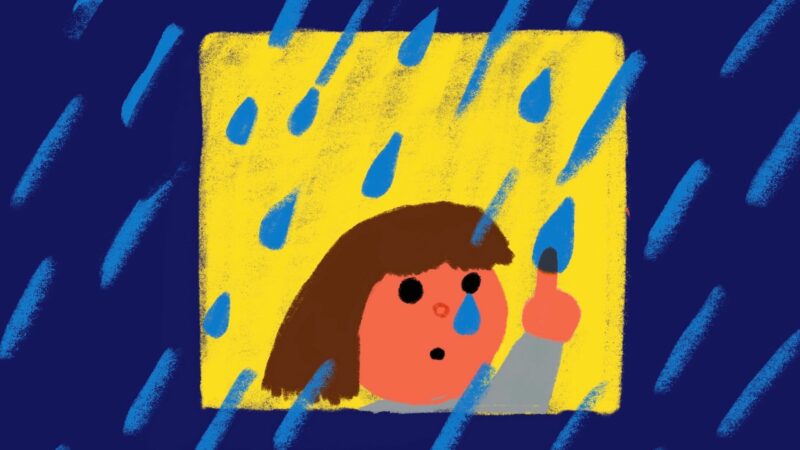Resilience emerges through our struggles. As we struggle, we emerge stronger. – Stephanie Trudeau
Ambiguous Loss
It’s difficult to find a pattern of coping when we are continually being asked to draw upon our resources, access our reserves, and forge new ones. It’s especially hard when you don’t even know what the next change or threat will entail. Sometimes it may feel that all we are doing is fending off one change after another. There is no question that the world today forces us to deal with ambiguity. This, to me, sounds a whole lot like ambiguous loss. Ambiguous loss pioneer, Family Social Scientist and Family Therapist, Dr. Pauline Boss states that ambiguous loss is any loss that is unclear or lacks a resolution.
There are two types of ambiguous loss. One entails a physical absence where the person is very much psychologically present. Examples of this are: prisoners of war, kidnappings, divorce, abandonment, and missing friends, family, and separation from family when you never know if/when you’ll see them again. The second entails a psychological absence where the person remains physically present. Examples of this are: dementia/Alzheimer’s disease, severe mental illness, addiction, traumatic brain injuries, and chronic illness. In both types of ambiguous loss, grief is frozen, leaving you constantly searching for answers. Not knowing and being in limbo can create feelings of persistent uncertainty, helplessness. It may even lead us to wonder if we are allowed to, or should grieve.
Three Ways to Cope with Ambiguous Loss
Below you will find my three most recommended ways to deal with ambiguous loss:
1. Humanize Grief and Loss
Generally, I would start my recommendations with normalizing the experience. I have recently shifted my language from “normalizing” to “humanizing.” We all experience grief at one time or another. We all have lost something. Grief and loss are universal. Comparative suffering (e.g., my loss is bigger than theirs, or their loss is bigger than mine) is not helpful. Each person’s experience, emotions, and trajectory with loss is unique. The thing about grief is that there is no endpoint; it is not a task for you to achieve, and it is not a competency you can master. The endpoint is not closure. Closure is a myth. We learn to live with loss. Step 1: humanize loss.
2. Tolerate Concurrent Thoughts: Both/And Thinking
This is a learned skill where you practice holding contradictory thoughts. This is a different way of thinking for those who feel most comfortable with binary thinking (e.g., it’s either this way or that way). Entertain the idea of holding both sides. It may look like this: “Everything that is going on in the world is so horrible. There is so much suffering, and yet, I’m able to embrace the simple joys that are in my ordinary routines.” Understanding that contradictions can coexist, and experimenting with both/and thinking are ways to cope with ambiguous loss. Step 2: practice both/and thinking.
3. Focus on Meaning Making
There are various pathways one can take while living with loss. Family resilience expert, Dr. Froma Walsh talks about grief as something that osculates and does not follow a clear linear path or stages like we’ve previously been led to believe1-2. How we make sense of—or make meaning from—our circumstances, can strongly impact our ability to psychologically cope. This entails finding meaning and hope, making sense of circumstances, celebrating what remains, and creating past/present/future narratives. Resilience emerges through our struggles. As we struggle, we emerge stronger. Coping + adaptation + positive growth = resilience. Recognizing your capacity for resilience is another way to make meaning. Integrate your resilience response into your new narrative. Step 3: Meaning Making for resilience.
Additional Resources on Ambiguous Loss
- Ambiguous Loss and the 2020 Pandemic | State of Mind Podcast
- Living the Questions: It’s Really Settling in Now, the Losses Large and Small | On Being with Krista Tippet Podcast
- AMBIGUOUS LOSS: Helping Teens and Others Cope with Lost Milestones | University of Minnesota Alumni Association
- Feeling Sad During Hard Times Is Not Depression| Psychology Today
References
1. Walsh, F. (2020). Loss and resilience in the time of COVID‐19: Meaning making, hope, and transcendence. Family process, 59(3), 898-911.
2. Walsh, F. (2016). Applying a family resilience framework in training, practice, and research: Mastering the art of the possible. Family Process, 55(4), 616-632.
Continue Exploring

Resilience
A Practice: The Five R’s of Resilience and Recovery
Cynthia Eriksson's psychological and theological framework points to 5 self-care practices to developing resilience and recovery.

Practices
A Radical Idea: Becoming Skilled in Our Own Well-being
Wellbeing is something we can actively cultivate through practice, or through a practice of "mental hygiene."

Emotions
Grief and Mindfulness: How to Manage Your Emotions
Dr. Joey Fung discusses the myths of grief, offering 3 ways mindfulness can help us manage our emotions during times of grief.

